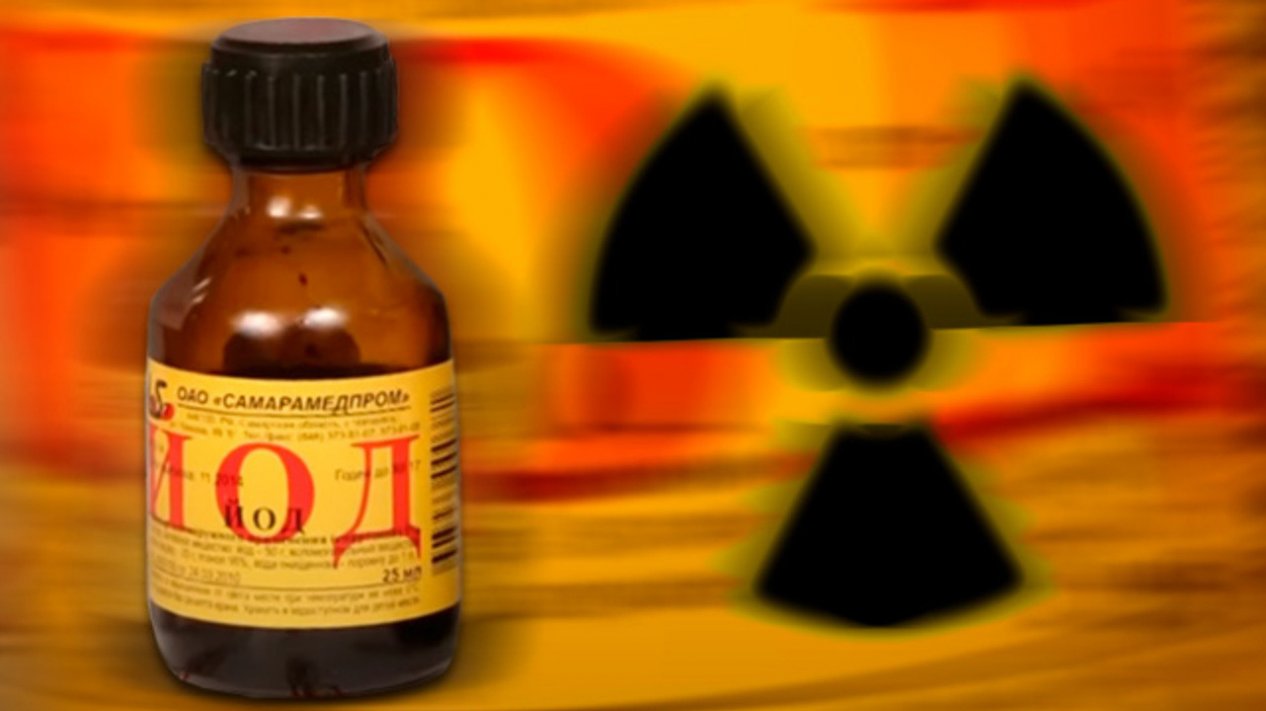
Interruptions in the supply of Russian medical products have deprived Azerbaijani pharmacies of a number of familiar products, Head of the Club of Pharmacists Shovgi Bunyadov said.
He noted that it is currently very difficult to purchase iodine - in recent months, pharmacies receive no more than four vials per day, while demand is about 50-60 units daily. “In Russia, these products are intended for domestic use. And due to the situation at the border, imports have been suspended. Since we do not have our own production, there is such a shortage of medicines,” Shovgi Bunyadov explained. The drugs familiar to the Azerbaijani buyer are produced by the Yaroslavl Pharmaceutical Factory. Changing suppliers is a lengthy process that requires not only time, but also breaking ties with the previous manufacturer.
In turn, the Center for Analytical Expertise of the Azerbaijani Healthcare Ministry reported that measures are being taken to eliminate iodine deficiency in the country's pharmacies.
"The application for the import of iodine into the country was approved for the last time in April. And only at the end of September we registered a new application from the company importing iodine. I believe that iodine deficiency will be eliminated in the near future," the structure noted.
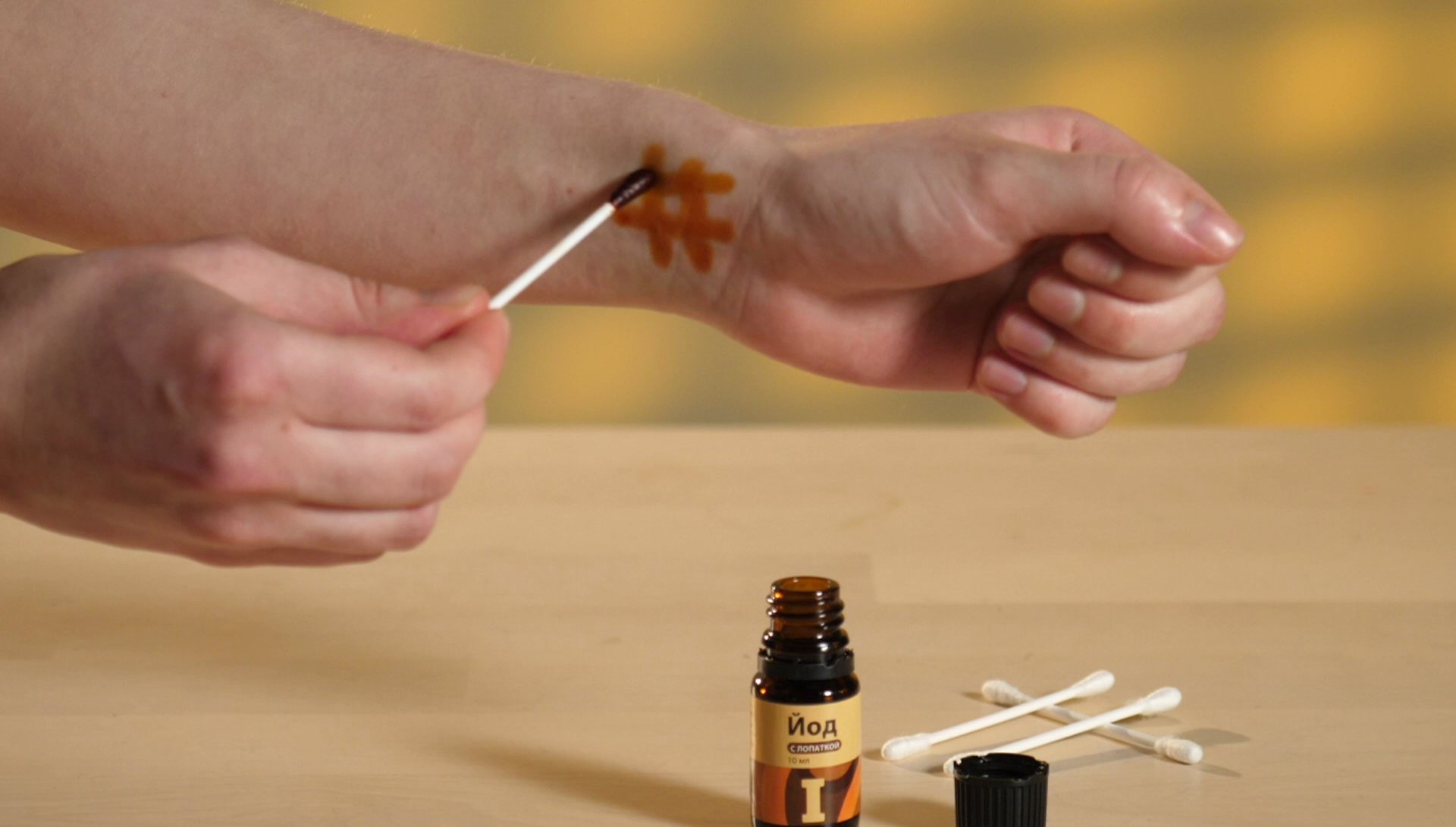
Faktyoxla Lab has tried to find out if the shortage of this drug is related only to the change in the supplier of iodine in Azerbaijan.
It turned out that iodine deficiency is observed not only in Azerbaijan. For example, Finnish pharmacies ran out of iodine preparations in September following the publication of new recommendations from the Ministry of Social Affairs and Health on the use of this medication in the event of a radiation threat. The drug must be in the home medicine cabinet for people under 40 years of age, since they are at risk of developing thyroid cancer as a result of exposure to radiation. The National Association of Pharmacists says iodine will be back on the market nationwide in the near future. And, most importantly, it is noted that what happened is evidence of the fears of the Finns that the war in Ukraine will lead to a nuclear catastrophe.
The situation in Russia itself is no better. RNC Pharma Development Director Nikolay Bespalov recently commented on the situation with Russia's acquisition of radiation pills worth almost five million rubles. Earlier, a tender for the supply of a large amount of potassium iodide appeared on the public procurement website, which caused a stir in social networks.
It is necessary to understand that the procurement is carried out by a structure subordinate to the Federal Medical-Biological Agency (FMBA): it deals with radiation and chemical safety and provides for the needs of Russia’s Rosatom and other companies working with radioactive materials.
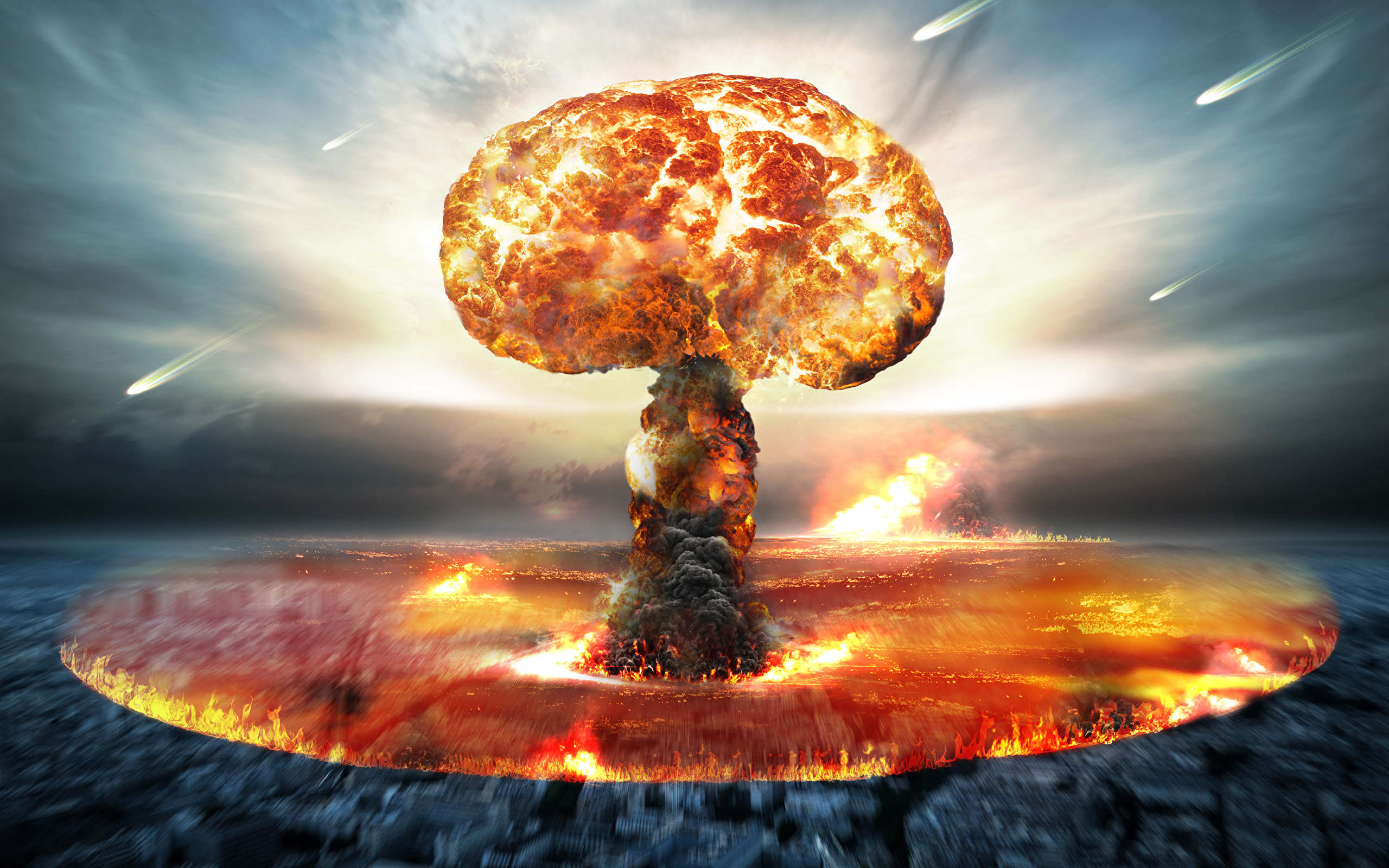
“Of course, this structure should provide them with potassium iodide as one of the simplest means of radiation protection. This is an absolutely routine process, and we have a huge number of nuclear power facilities, laboratory and medical ones that are associated with radiation,” he said.
“Unfortunately, or fortunately, I don’t know whether we are preparing for a nuclear war, but I can definitely say that this purchase has nothing to do with its preparation,” the specialist summed up.
Interestingly, against the backdrop of increasingly persistent talk about the possibility of Russia using nuclear weapons, Ukraine also began to experience a shortage of potassium iodide, a drug that doctors recommend taking in the event of a nuclear strike.
The topic of the threat of a nuclear strike intensified after the so-called "referendums" in the occupied Ukrainian territories, and especially after Putin's decision to annex them and statements that "all means" would be used to "protect new territories." "In the event of a threat to the territorial integrity of our country, we will certainly use all the means at our disposal to protect Russia and our people. This is not a bluff," Putin said.
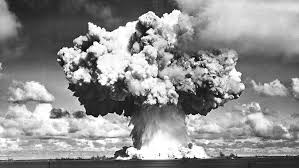
Against the backdrop of all these threats, demand for potassium iodide has skyrocketed. According to observations, residents of, for example, Kyiv, buy potassium iodide in reserve and in much larger quantities than it is recommended to take in the event of a nuclear strike. Excessive demand for potassium iodide has already led to a rise in the price of the drug and its resale through advertisements. So, for example, on the website of a pharmacy, one blister (10 tablets) of the Darnitsa pharmaceutical plant is sold for 300 UAH ($8). Although usually it costs two times cheaper - 150 UAH ($4).
So, as it turned out, despite that in 2021 the global production of iodine increased to 35,000 tons, which is 5% more than in 2020, due to the events in Ukraine, iodine deficiency is observed in many countries.
But the question remains: is it true that iodine is necessary to minimize harm from radiation?

To begin with, the fact that iodine is necessary to minimize the harm from radiation is well known from numerous publications. As mentioned above, against the backdrop of heightened anxiety about the use of nuclear weapons, many drugs containing iodine, as well as potassium iodide, disappeared from pharmacies in many countries bordering Ukraine and Russia. For example, in September, the media also reported on the lack of iodine-containing drugs. The fact that iodine is necessary in the event of radiation exposure is indirectly evidenced by the fact that the latest version of the individual first-aid kit (AI-4), and earlier in AI-2, contains an iodine preparation for protection against radiation under the name “Radioprotective agent No. 2".
According to the WHO, radiation, or ionizing radiation, is the transfer of energy in the form of electromagnetic waves or subatomic particles. In nature, there are natural sources of radiation - radioactive substances present in soil, water, air and in the human body. There are also artificial sources of ionizing radiation - X-ray machines or radiopharmaceuticals. The release of radiation can happen due to an industrial accident (as was the case in Chornobyl and Fukushima), a terror attack at a nuclear power plant (for example, there is a threat of a terror attack at the Zaporizhzhia nuclear power plant, located in the combat area) or in the event of the use of nuclear weapons (as happened in the Japanese cities of Hiroshima and Nagasaki).
It is important to note right away that as a result of a nuclear catastrophe, various radioactive elements are released, and not just iodine (I-131). For example, in the fission reactions of uranium and plutonium, cesium (Cs-137 and Cs-134) and strontium (Sr-89 and Sr-90) are also released. In addition, as a result of explosions, contamination with thallium, ruthenium, xenon and other elements can occur. For each of the substances there are antidotes. Taking iodine will in no way reduce the harmful effects of cesium or strontium. In this case, for example, the harmful effects of cesium and thallium are minimized by Prussian blue, the antidote to strontium is activated barium sulfate (adsobar) and polysurmin. There are also complex preparations that protect against several radioactive compounds at once. That is, in each specific case of radiation exposure, one should use its own group of drugs to protect.
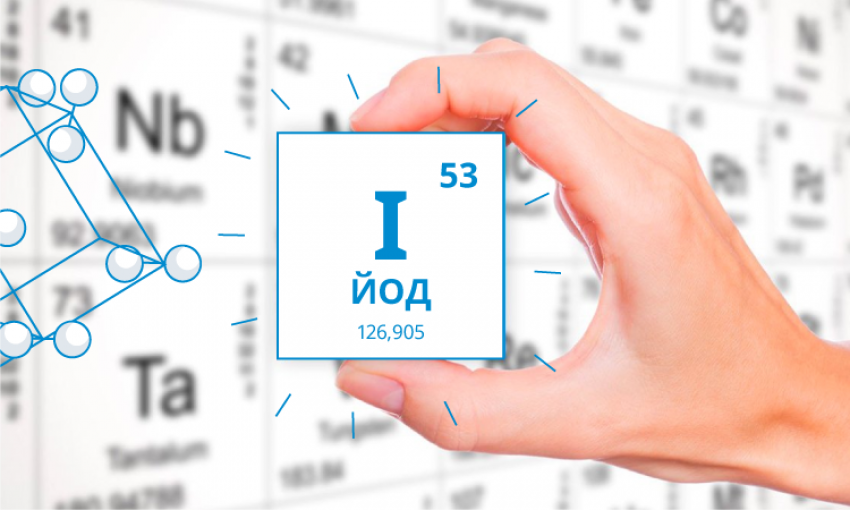
An iodine preparation, namely potassium iodide, is indeed able to minimize the harmful effects of radioactive iodine on the body, protecting, in particular, the thyroid gland, the organ that accumulates the most significant amount of the radioactive isotope of the element. In the case of taking potassium iodide (stable iodine), it "fills" the thyroid gland, and it simply cannot absorb radioactive iodine. This method is called iodine blockade of the thyroid gland. Since potassium iodide is widely available (sold in pharmacies without a prescription), its popularity for protection against radiation is much higher than, for example, Prussian blue, which is quite difficult to obtain or even needs to be made in an artisanal way using complex chemical reactions.
It is important to remember that, firstly, only the intake of potassium iodide gives effective protection against radioactive iodine, the iodine mesh on the skin will not give the desired effect. But Lugol’s solution, used to treat infectious and inflammatory diseases of the throat, may well replace the tablet form of potassium iodide. The Federal Biomedical Agency on its official website also allows the use of an alcohol solution of iodine in the event that an emergency has occurred, but there are no potassium iodide tablets.
However, it is also strictly stipulated there that such therapy should be carried out exclusively by medical personnel. The WHO website in the section "Use of potassium iodide to protect the thyroid gland during nuclear or radiological emergencies" mentions only the tablet form of potassium iodide and does not specify replacement options. It should also be noted that dietary supplements with iodine and multivitamin complexes cannot replace potassium iodide. On average, such preparations contain a daily dose of iodine - 100-200 mcg, and for an effective blockade of the thyroid gland, an adult needs to take 125 mg, that is, 625-1,250 vitamins, depending on the dosage of iodine in their composition! Also, iodized salt cannot act as an alternative to potassium iodide - there is too little stable iodine, and taking significant amounts of salt in a short time is dangerous to health.
It is worth noting that taking potassium iodide just in case is useless, and under some conditions of the body it can be harmful. WHO calls the most optimal interval from less than 24 hours before and up to two hours after the alleged ingestion of radioactive iodine in the body. It is also advisable, but less effective, to take potassium iodide up to eight hours after the expected exposure. After 24 hours from the moment of radiation, iodine prophylaxis is useless. Iodine blockade of the thyroid gland is quite short - it lasts only 24 hours. In case of prolonged or repeated exposure, the impossibility of avoiding the consumption of contaminated food and drinking water, or the impossibility of evacuation from the accident area, it is permissible to take iodine preparations again 24 hours after the first exposure.

Due to the short-term nature of iodine blockade, potassium iodide should not be taken every day just in case. In 2004, after the accident at the Balakovo nuclear power plant, local residents began to massively take iodine - in the form of an alcohol solution, tablets, iodized salt or seaweed. Residents of Saratov, Samara, Saransk and Penza were hospitalized with serious poisoning. It is even possible to be poisoned to death with iodine - the lethal dose with a single intake is 3 g. With iodine intoxication, the tongue and vocal cords swell, suffocation develops, kidneys and the cardiovascular system are damaged, vomiting and diarrhea begin, mental functions also suffer - delusions of persecution, psychosis and insomnia appear.
Summing up, it is safe to say that iodine preparations, primarily potassium iodide, really protect the thyroid gland from radioactive iodine. At the same time, it is important to take potassium iodide in the recommended doses and strictly given a real risk of infection. When taken for prevention, blockade of the thyroid gland is useless and even dangerous. It must be remembered that iodine protects only the thyroid gland and only from radioactive iodine.




















